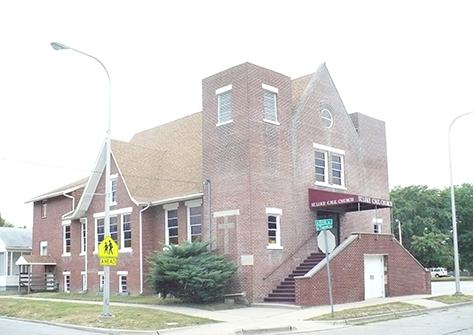St. Luke Christian Methodist Episcopal (C.M.E.) Church
809 N. Fifth Street, Champaign, IL
Located at 809 N. Fifth Street in Champaign, St. Luke C.M.E. Church was established in 1901, making it the third-oldest historically African American congregation in Champaign County. Originally located on Eads Street in Urbana and called St. Luke Tabernacle Colored Methodist Episcopal Church, it was renamed in 1954 to Christian Methodist Episcopal. The church moved to its current location in 1914.
Decade:
1900-1909
Location(s):
- Champaign, Illinois
Additional Champaign Trail Sites

Make a difference.
The Trail relies on the generosity of private and public donations. With your gift, you help ensure that the Trail is a free, accessible experience for all. You also help make our vision—to inspire conversation, expand understanding, and contribute to a better society—a reality.
